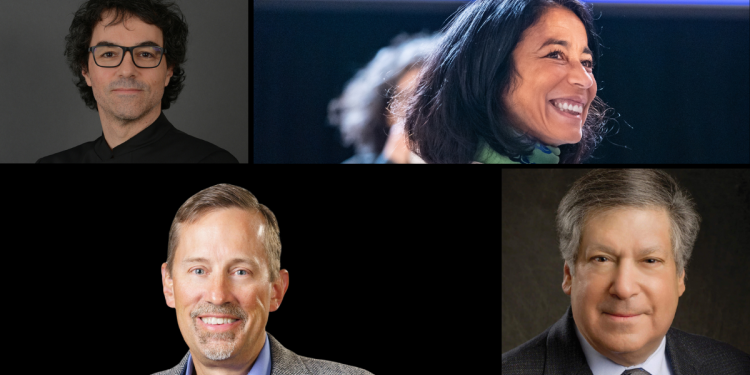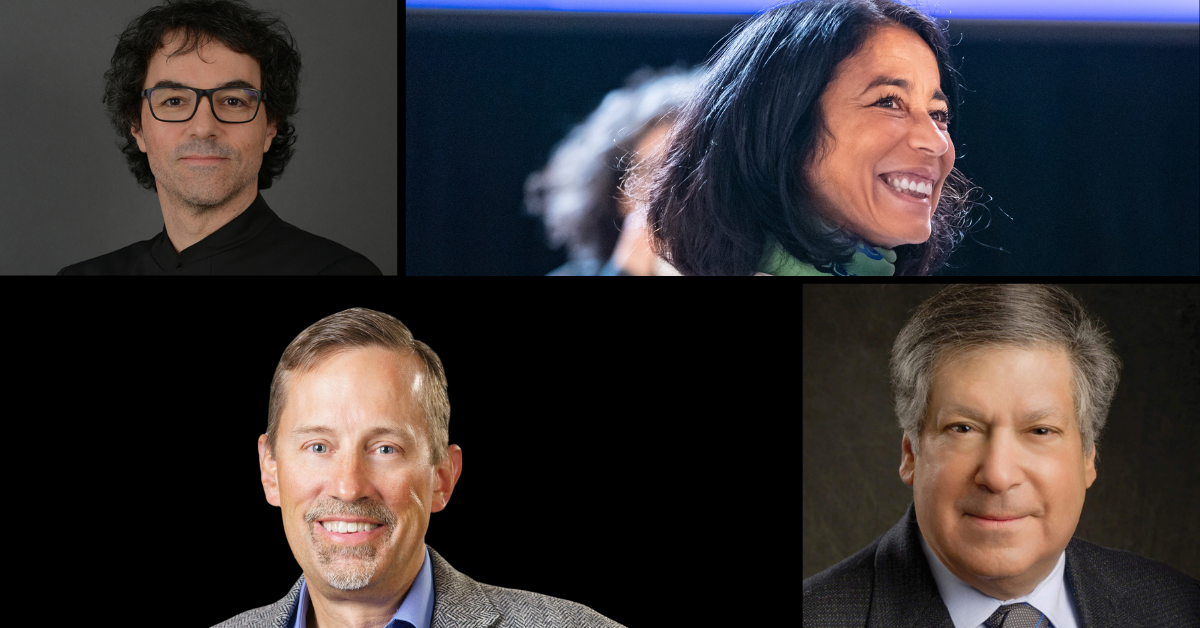
Introducing our new Scientific Committee members
Four new members
We are pleased to welcome four new members to the Cancer Grand Challenges Scientific Committee: Professor Fabrice André (Institut Gustave Roussy), Professor Miriam Merad (Mount Sinai School of Medicine), Professor Robert Schreiber (Washington University in St. Louis) and Professor David Tuveson (Cold Spring Harbor Laboratory).
The Scientific Committee
Chaired by Professor Charles Swanton, the Scientific Committee is a pivotal part of the Cancer Grand Challenges community, providing scientific leadership at each step of the funding process. The committee is made up of eminent scientists, both clinicians and discovery researchers, who each provides a different perspective on how to tackle cancer’s toughest challenges by bringing expertise from their respective fields, as well as the ability to think big, beyond their own areas of research. We recognise the commitment required from our committee members and would also like to take this opportunity to thank our esteemed colleagues who are stepping down from the committee for their invaluable input and support in helping steward the initiative thus far.
Fabrice André
Fabrice is currently Head of Research and Professor in the Department of Medical Oncology, Institut Gustave Roussy, Villejuif, France. His research in the field of biomarkers and personalised therapies focuses on biomarker discovery, development of targeted agents and implementation of personalised medicine. His labs work spans basic sciences, bioinformatics, biotechnologies and clinical research. He is also leading phase I-III trials testing targeted agents in the field of breast cancer and large national trials testing implementation of high throughput technologies in the health care system.
Miriam Merad
Miriam is the Dean of Translational Research and Therapeutic Innovation, Chair of the Department of Immunology and Immunotherapy, Director of the Precision Immunology Institute at Mount Sinai School of Medicine in New York and the Director of the Mount Sinai Human Immune Monitoring Center.
She is an internationally acclaimed physician-scientist and a leader in the fields of dendritic cell and macrophage biology with a focus on their contribution to human diseases. Miriam identified the tissue-resident macrophage lineage and established its contribution to cancer progression and inflammatory diseases. She is now working on developing novel macrophage-targeted therapies for these conditions. In addition, Miriam is known for her work on dendritic cells, which control adaptive immunity. She identified a new subset of dendritic cells, now considered a key antiviral and antitumor immunity target.
Robert Schreiber
Bob is currently the Andrew M. and Jane M. Bursky Distinguished Professor at the Washington University School of Medicine and the director of The Bursky Center for Human Immunology and Immunotherapy Programs. Bob has been a pivotal figure in validating and advancing the theory of cancer immunosurveillance and immunoediting, the processes by which our immune systems monitor, control, and shape the development of cancer. His current work continues to characterise how various immune signalling pathways, as well as tumour mutations, influence anti-tumour immune responses.
David Tuveson
Dave is a physician scientist with a longstanding interest in understanding and treating pancreatic cancer. He is currently the Director of the Cancer Center and the Roy J. Zuckerberg Professor of Cancer Research at Cold Spring Harbor Laboratory. Additionally, he is the Chief Scientist of the Lustgarten Foundation. Dave is known for developing the first mouse and organoid models of pancreatic cancer, and identifying subtypes of cancer associated fibroblasts. Since developing the first mouse model of pancreatic cancer in 2002, the Tuveson lab has made a series of discoveries that shed light on the molecular drivers of this disease, and provide promising therapeutic avenues for a malignancy that is notoriously challenging to treat.
We look forward to seeing how Fabrice, Miriam, Bob and Dave will shape our next round of challenges with their unique perspectives.

